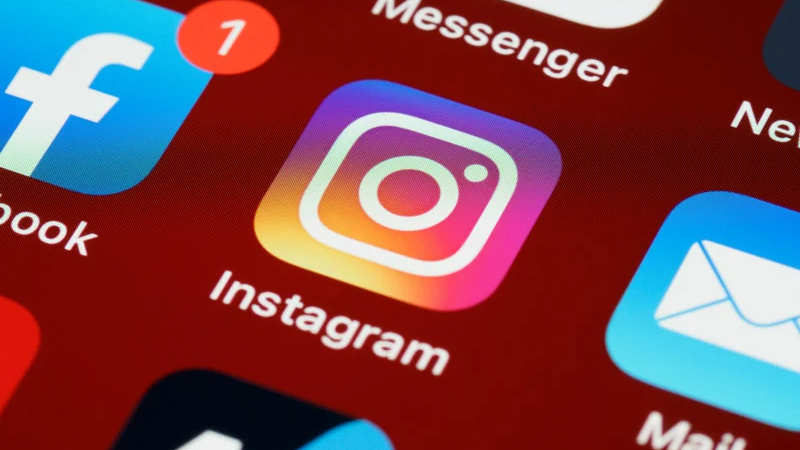
Is GPT-4 the Next Revolution in Language Models? Experts Weigh in on Its Potential and Ethical Concerns
OpenAI’s latest language software, GPT-4, was launched on Tuesday, offering advanced capabilities such as image analysis and human speech mimicry. Following the success of ChatGPT, which boasts over 13 million daily active users and 100 million users as of January 2023, GPT-4 has the potential to revolutionize the AI industry. However, widespread adoption of AI chatbots like GPT-4 could raise ethical concerns, including perpetuating social biases and offering bad advice, as well as leading to job displacement. As AI advancements fuel a multibillion-dollar race for AI dominance, the need for transparency and regulation in this field is becoming increasingly urgent.
OpenAI’s GPT-4: The Future of AI or a Reason for Alarm?
The latest technology update of ChatGPT has demonstrated significant advancements in performance, scoring in the top 10% of test takers in a simulated law school bar exam. This is a stark contrast to the prior version, GPT-3.5, which scored in the bottom 10%. Additionally, GPT-4 is equipped to read, analyze, or generate up to 25,000 words of text and write code in all major programming languages.
While the image input feature remains limited to research and training teams, the text input feature is now available to ChatGPT Plus subscribers and app developers. The company has also claimed that GPT-4 is more dependable and innovative, making it capable of handling more precise instructions in complex conversations.
Several third-party products, including Microsoft’s AI-powered Bing, have already started integrating GPT-4. This updated version is generating a lot of buzz because it can provide instant answers, assist artists and visual content creators to produce high-quality content, and create multimedia content, such as video, images, and audio. Microsoft has invested $10b in OpenAI.
Holger Kane, the Director of Business Strategy at Microsoft Germany, stated that the new robot will be able to produce images, videos, and music based on the words written by the user. He also noted that the robot could assist call centers by recording calls and converting them into texts for quality control.
OpenAI spent 6 months on safety features for GPT-4 and trained it with human feedback, but it may still spread disinformation. GPT-4 is only available to $20/month ChatGPT Plus subscribers and is being used by Microsoft’s Bing search engine platform.
Overall, GPT-4 is a significant milestone for OpenAI, as it has exhibited human-level performance on various professional and academic benchmarks.
In a blog post on Tuesday, OpenAI developers made grand promises about how their latest AI technology, GPT-4, could revolutionize work and life. However, these promises have sparked concerns about the potential for job loss and the accuracy of online information.
OpenAI officials have touted GPT-4’s “multimodal” training across text and images, allowing it to go beyond ChatGPT and better emulate a world of color and imagery. For instance, GPT-4 could generate captions for uploaded images, describing objects and scenes. Nonetheless, it still has many of the errors found in previous versions, including reinforcing discriminatory attitudes, giving bad advice, and hallucinating nonsense.
Moreover, it has limited knowledge beyond events before September 2021, and it cannot learn from its experience. Despite these limitations, Microsoft has invested billions of dollars in OpenAI, hoping to leverage GPT-4’s advanced capabilities in its workplace software, search engine, and other online ventures.
The rapid advances in AI technology and the hype surrounding it have also raised concerns about its untested, unregulated, and unpredictable nature. AI language models can confidently offer incorrect answers, as they are designed to generate coherent phrases, not necessarily factual information. OpenAI researchers warned that GPT-4 and other similar AI systems could reinforce certain ideologies and worldviews and cement them or lock them in.
As such, there is a need for an immediate response to address the potential risks of AI technology. Despite this, AI researchers criticized OpenAI for not disclosing information about GPT-4’s bias evaluations, data sets, and training methods, citing the competitive landscape and safety implications as reasons for non-disclosure.
In a recent demonstration on the company’s YouTube channel, Greg Brockman, Head of OpenAI, showcased GPT-4’s remarkable ability to transform a hand-drawn design for a simple website into a fully functional website. The demo also highlighted GPT-4 Chat’s capability to assist individuals in calculating their taxes.
One of the notable improvements of GPT-4 is its ability to reduce the occurrence of inaccurate responses or “hallucinations,” which were a significant challenge in previous versions. OpenAI claims that GPT-4 is 82% less likely to produce such inaccurate responses compared to its predecessor, GPT-3.5.
Plus, to test GPT-4’s language processing capabilities, several practical experiments were conducted using the Arabic language, including research, interpretation, and programming. In the research experiment, GPT-4 outperformed GPT-3.5 in providing precise and relevant information about Russian writer Anton Chekhov. GPT-4 was also better at interpreting complex phrases, such as “go back with nostalgia,” in the interpretation experiment. In the programming experiment, both GPT-4 and GPT-3.5 produced correct results, but GPT-4 was better at understanding the question and providing the required solution in Arabic.
GPT might just become our closest ally in the future!
The AI-Powered Code Generator for Streamlined Software Development
The success of GPT Chat technology has not gone unnoticed by industry players. Indian app Koo has integrated GPT Chat into its platform, allowing users to create posts related to current events using voice commands, making the process of content creation more accessible and intuitive. The co-founder of Koo, Mayank Pedwatka, has stated that the integration of GPT Chat will provide a more sophisticated experience for Koo users, and is expected to increase engagement on the app. Pedwatka noted that currently, only 20% of Koo users are active on the application, and the integration of GPT Chat is expected to increase this number.
In addition to the advancements made with the new GPT-4 version, OpenAI has also recently announced that it will be allowing third-party businesses to integrate their ChatGPT tool into their apps and services. This move has already seen early partners such as Instacart, Snap, and tutor app Quizlet experimenting with the tool.
Besides, Microsoft has also confirmed that it has made a “multibillion dollar” investment in OpenAI and has since incorporated the technology into some of its products, including its search engine Bing. With more and more companies showing interest in incorporating this advanced AI chatbot technology into their services, it is clear that ChatGPT is set to play a significant role in the future of customer service and engagement.
Instacart, for example, has integrated ChatGPT into its app to provide customers with personalized shopping recommendations based on their preferences and previous purchases.
The impact of GPT-4 extends far beyond language processing and natural language understanding. The ability to generate fully functional websites from hand-drawn designs opens up new possibilities for designers, web developers, and businesses alike. With GPT-4, it may become possible for non-technical individuals to create complex websites without the need for coding knowledge or technical expertise. This could lead to a democratization of website creation, allowing more people to participate in the creation of digital content.
GPT-4’s enhanced language processing capabilities have significant implications for education, research, and even journalism. With GPT-4, it may become possible to generate accurate and relevant summaries of complex academic research papers or news articles, making it easier for students, researchers, and journalists to stay up to date on the latest developments.
Another exciting feature of GPT-4 is its ability to understand and generate code. This is particularly useful in software development, where developers can use GPT-4 to generate code snippets for specific tasks, saving time and increasing efficiency. In a trial run, GPT-4 was able to generate code for a simple web application that allowed users to create and save notes. The generated code was clean and concise, representing the potential for GPT-4 to streamline the software development process.
Microsoft has already incorporated the technology into some of its products, such as Bing, and is expected to integrate it into more services in the future. The assimilation of ChatGPT into Bing, for example, will enable users to search for information using natural language, making search queries more intuitive and efficient.
As GPT technology continues to evolve, we can expect to see more exciting applications and use cases in various industries. The incorporation of ChatGPT into customer service platforms, for example, will enable businesses to provide personalized support to their customers, improving the overall customer experience. In the field of education, ChatGPT can be used to create personalized learning experiences for students, providing them with tailored support and feedback.
For instance, AI becomes more sophisticated, it is crucial for businesses and developers to consider the ethical implications of AI and ensure that its use is in line with ethical standards and regulations.
Well, we do believe that AI will enhance our productivity and promote cleaner energy!
Finally, the advancements in GPT-4 and ChatGPT are set to revolutionize the way businesses interact with their customers and the way we use AI in various industries. While there are concerns about the ethical implications of using AI, the potential benefits of ChatGPT are significant, and its integration into various platforms will provide users with more personalized and efficient experiences. As we continue to explore the possibilities of AI, it is vital to consider the ethical implications and ensure that its use is in line with moral standards and regulations.
Brett Vogelsinger, author, says: “ChatGPT will be better utilized in a classroom where writing is assigned rather than taught”.


